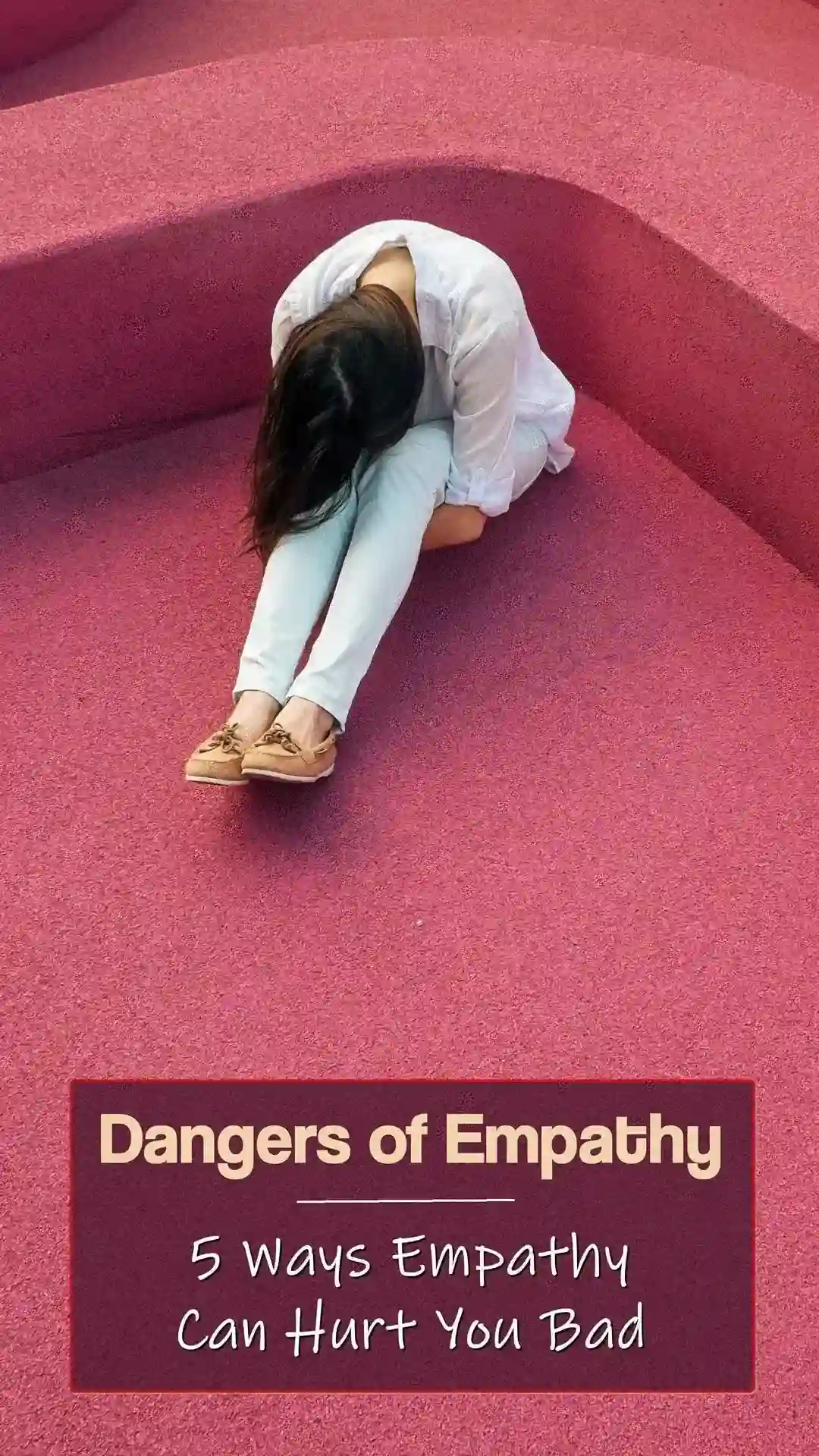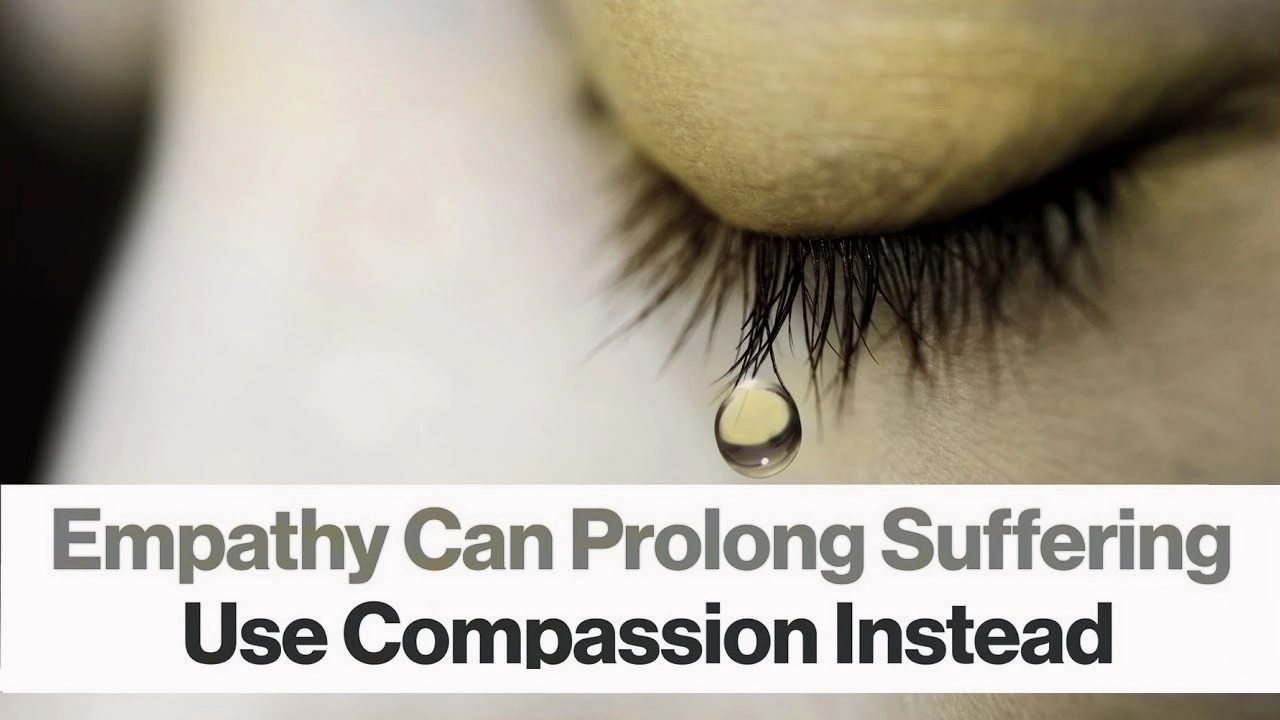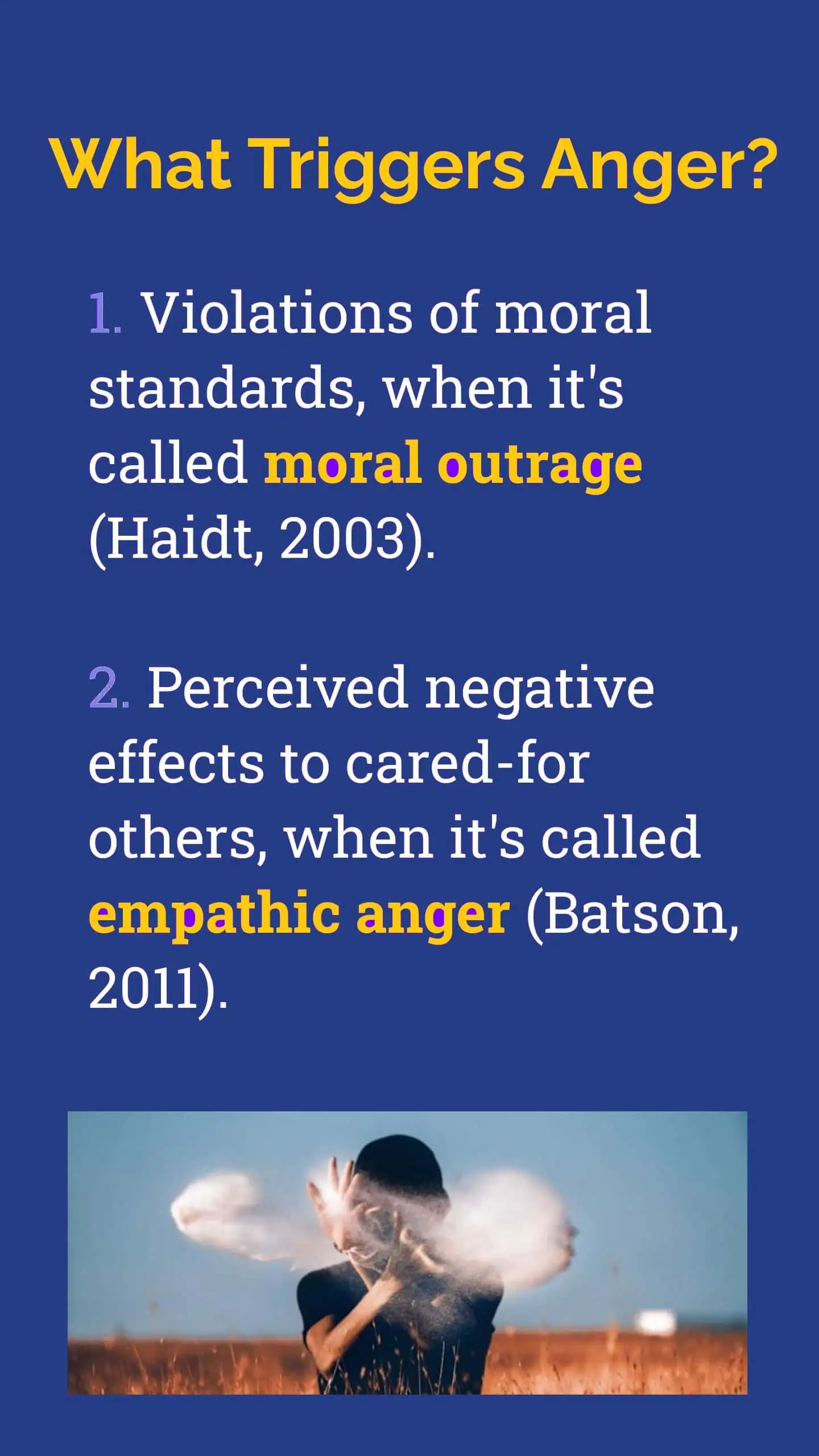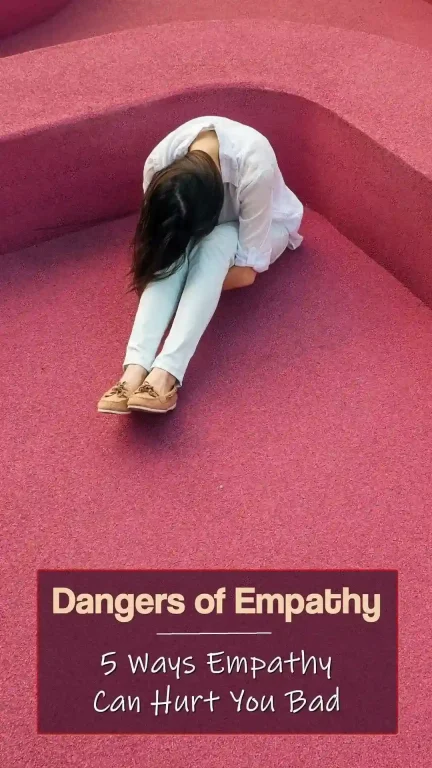Today's Sunday • 12 mins read
In a simple expression, empathy is: “I know exactly how you feel.” Or, “I know exactly where your shoe pinches.” Of course, ‘exactly’ is an overstatement.
Can empathy be bad? Can too much empathy hurt you? Does empathy have a dark and negative side we don’t know of? Yes, to all of them.
- Empathy can bankrupt you through “empathy guilt” and “pathological altruism.”
- It can damage your relationships faster by making you angry, bitter, and aggressive.
- Empathy can help narcissists read a target’s mind to figure out how to mistreat them the most.
We borrow from the tragedy of others to make our empty days feel purposeful and high-stakes. We are emotional parasites. — James Dawes
Read on to find out the five ways empathy can hurt:
1. Empathy can make you sad and broke (empathy-based guilt).
People develop empathy-based guilt when they see others in distress and feel guilty that they are somehow responsible for that person’s troubles.
Years back, I had a patient whose family brought him in with this strange form of empathy. His family (wife, children, and brother) told me that, of late, he had been giving away most of his salary money to beggars and the homeless.
By the time they found out, he had already given away many valuable things, including a gold coin. They also got to know from one of his colleagues about his getting caught at the check-out gate with office articles on his person. He explained he wanted to donate them to helpless people.

Empathy-based guilt can show up as survivor’s guilt, in which the person believes their happiness and success have come at the cost of the unhappiness and failures of others.
Since they believe they are the cause of others’ distress, they also create false beliefs in their minds that they can cure their problems and relieve their suffering.
This mostly leads to their giving away of possessions and often ending up broke and bankrupt down to the last penny.
There’s a related concept called pathological altruism.
Psychologist Lynn O’Connor has suggested that empathy-based guilt can be the harbinger of later-life depression.
Depressed patients are known to show signs of empathic distress, survivor guilt, and submissive behavior.
Studies suggest that mildly depressed people show the highest levels of empathy.
Moreover, the empathic reaction in depressed people often leads to great distress because they unrealistically blame themselves for the pain felt by others.

Mildly depressed people show the highest levels of empathy.
2. Empathy can be dangerous to others (cognitive empathy).
The traditional way to explain psychopaths is that they are incapable of empathy, remorse, or guilt. But it is not all true.
Psychopathy is officially called Antisocial Personality Disorder (ASPD). It is defined as a persistently flawed, deep-rooted, unethical way of thinking that leads to exploitative, abnormal, and law-breaking behavior carried out without remorse.
Psychopathy is a Cluster B disorder, which also includes borderline, narcissistic, and histrionic personality disorders.
Psychopaths and narcissists can often read your thoughts and predict your actions. This type of empathy is called cognitive empathy.
They can cognitively empathize with you, that is, understand what you are thinking and feeling.
Neuroscientist Christian Keysers, who wrote The Empathic Brain, examined the fMRI brain scans of 18 psychopaths. He found that when psychopaths were asked to empathize, they showed normal levels of empathy.
Psychopaths try to convince their targets that they themselves are to blame for their misfortune (brought about by the psychopath).
Psychopaths are master manipulators and often use their excellent empathetic skills to deceive and hurt, violating the rights and boundaries, and destroying the mental peace and balance of their chosen targets.
So, if a dominant person in your life publicly criticizes you and then blames you for their bad behavior, that person has narcissistic traits.
3. Too much empathy can destroy relationships faster (hyper-empathy).
There is an unhealthy effect of empathy you may not know. Having too much empathy can destroy your relationships.
Since empathy is more about understanding. If a couple is in a distressed relationship (‘on the rocks’), one partner can accurately gauge what is going on in their companion’s mind.
This accuracy of mind-reading, called cognitive empathy, can lead faster to the end of the relationship. As that person can accurately predict if their partner is feeling aloof, distressed, bitter, or revengeful.
Empathy is not curative, as love is. Love can cure, but empathy cannot.
Love can make any relationship more positive, whether it is going well or is in a precipitous state. Empathy does not have this always-on healing effect.
To care for someone, you don’t have to suffer with them:
- Empathy involves feeling another person’s pain and suffering with them.
- Compassion means caring for another’s well-being without experiencing their suffering.

People with hyper-empathy (who are often called empaths by the public) are highly sensitive to social stimuli but cannot process them well.
They often deflect their own feelings and have negative expectations from their interactions.
They also have a reduced ability to make decisions that would serve their best interest. They also lose grip on their internal resources to give their best to the key people in their lives.
In time, they give in to physical and psychological exhaustion to maintain or nurture a relationship.
Also, overly empathetic people expose themselves as easy targets of psychopaths and narcissists in their relationships.

4. Empathy can weaken and exhaust you (empathy fatigue).
Mark Stebnicki is a rehabilitation and trauma counselor and author of Empathy Fatigue.
Stebnicki coined the phrase empathy fatigue to mean a state of extreme exhaustion that causes mental health counselors to lose their resiliency, coping, and empathic abilities.
It usually happens because of “being continually exposed to their client’s life stories of chronic illness, disability, trauma, grief, and loss.”
It is a term related to compassion fatigue. Compassion fatigue is physical and emotional exhaustion, and a great decrease in the ability to empathize, with long-term caregivers.
It’s also known as the “cost of caring” for others in pain, physical or emotional.
Any line of work that requires a high level of empathy, can cause a person to develop empathy fatigue, and lead to burnout.
Burnout, in turn, can cause depression and anxiety, extreme physical and emotional exhaustion, and a dread of going to work.
Empathy fatigue appears to be quite a common experience among “high touch” professionals from fields such as teaching, journalism, nursing, medicine, law, and other settings where there is high work-related stress.

A tool to find out if one is experiencing empathy fatigue or compassion fatigue is the free Professional Quality of Life scale developed by psychologist Beth Hudnall Stamm, Ph.D.
5. Empathy can make you angry and aggressive (empathetic hostile behavior).
We usually believe that empathy and hostile behavior are in an inverse relationship. Reduced empathy increases the risk of someone becoming irritable and aggressive, while more empathy tends to make a person get less angry.
Jesper Juul, the Danish family therapist, has called hostile behavior and empathy to be “existential twins”.
While many therapists have suggested that empathy may prevent angry outbursts, there is at least one instance when it does the opposite.
So, how can empathy make you angry?
Anger has two triggers: perceived moral violations and perceived danger to loved ones. It’s the second one that uses your empathy.

Imagine yourself and your family in a club pool on a summer Sunday. A tall, muscular man in a Hawaiian shirt is standing in a corner of the water.
He has a fixed gaze and a poker face. And he is intently gazing at your preteen daughter as she practices swimming.
You begin to get upset, and even before you realize it, you flash into a rage. But he’s too big to get in a fight with. So you move in to block his view of your daughter.
You intuitively sensed what might have been going through that man’s mind, and for all the right reasons, you were enraged.
That was empathy making you angry.
Caring for a person you love can make you angry when you read there is a threat to them.
You foresee the pain and distress the other person might cause your loved one. Since it is a threat to your family’s survival, shoring up your aggressive resources is a natural reaction.
So, empathy can make you angry, very angry indeed, if you perceive a person is threatening your loved ones.
Note here: you did not get angry because you perceived the man to be a threat because of his baleful expressions—he did not show any. He was merely standing there, ‘poker-faced’, expressionless.
There is no way you could have read a threat from his face or body language. You were doing it with empathy.
You were doing it by standing inside his identity and reading what harm he could do.
Another related way empathy can hurt is when strong empathic connections with our family, social circle, or racial group may lead us to act in hatred or hostile behavior toward those we perceive as a threat.
By the way, anger differs from hostile behavior.
- Anger is a survival response to an approaching threat, a frustrating situation, or a social provocation.
- Aggression is behavior aimed at harming or injuring another living being when being in anger.
- Brain scan studies show the same areas of the brain (amygdala, hypothalamus, and periaqueductal gray) get stimulated when we are in anger or hostile behavior.
- Frustration occurs when you act expecting a reward but don’t receive it.
Empathy can make you angry if you perceive a person is threatening your loved ones.
Paul Bloom, author of How Pleasure Works: The New Science of Why We Like What We Like, feels that empathy is a flawed moral compass, prone to bias and emotional drain, that can be manipulated to promote negative behavior.
Negative Effects of Empathy
- Bias and Partiality: It can create bias, making people favor those they feel close to while neglecting the needs of others.
- Manipulation: Some people, like narcissists and psychopaths, can exploit their cognitive empathy skills to manipulate or control others for their own benefit.
- Overwhelm: Being overly empathetic can make one feel overwhelmed by the suffering of others, making it hard to cope with one’s own emotions.
- Difficulty Setting Boundaries: High levels of empathy can make it challenging to establish healthy boundaries, leading to codependency in relationships.
- Compassion Fatigue: In caregiving roles, excessive empathy can result in compassion fatigue, where caregivers become desensitized and less effective.
- Neglecting Self-Care: Focusing too much on others’ feelings can lead to neglecting one’s own needs and well-being.
- Conflict Avoidance: Empathetic people may avoid necessary confrontations or difficult conversations to spare others’ feelings, which can lead to unresolved issues.
- Chronic Stress: Empathy can create both long-term and short-term stress, leading to chronic low-grade inflammation, as found in studies on empathic parents.
- Heightened Stress Responses: Research shows that individuals who empathize deeply may experience higher “fight-or-flight” responses due to chronic activation of the stress hormone cortisol.
- Hyper-Empathy: Excessive empathy, known as hyper-empathy or borderline empathy, can make individuals vulnerable to manipulation and gaslighting, leading to mental exhaustion and burnout.
- Empathy Traps: Highly empathetic individuals may fall into “empathy traps,” where their sensitivity makes them easy targets for emotional exploitation.
- Emotional Drain: Constantly being exposed to others’ emotions can lead to burnout and emotional exhaustion. This is often called Trauma Dumping on social media.
Empathy vs. Sympathy
Sympathy and empathy are two different things.
| Aspect | Empathy | Sympathy |
|---|---|---|
| Definition | Understanding and sharing the feelings of others | Feeling pity or sorrow for someone else’s situation |
| Emotional Involvement | Deep emotional connection and engagement | More detached emotional response |
| Perspective | Putting oneself in another’s shoes | Observing the other from a distance |
| Response | Often leads to supportive actions based on understanding | May lead to offering condolences or support |
| Focus | Focuses on the other person’s feelings and experiences | Focuses on the situation or hardship of the other person |
Can Sympathy Also Be Bad
Can sympathy be bad too?
Sympathy originally meant sharing feelings of compassion, like crying or venting frustrations together.
Today, it means to express sadness without any intention to understand the cause of that sadness. As in the common, impersonal phrase, “Please accept our heartfelt sympathies.”
Sympathy itself isn’t bad, but it can feel empty or even dismissive.
So while sympathy has its place, it can sometimes be perceived as less meaningful than empathy, which involves truly connecting with and understanding another person’s emotions.
Final Words
Indeed, empathy can be dark, dangerous, and ominous.
We often do not care to consider these negative sides of empathy. We think we are helpful when we show our empathy and get moved by the tragedy and trauma of others.
But it’s not always as we think it is. Empathy is not always beneficial to the person we are empathizing with.
√ Also Read: The Dark Empath: 8 Traits of This Dangerous Personality
√ Please spread the word if you found this helpful.
» You deserve happiness! Choosing therapy could be your best decision.
...
• Disclosure: Buying via our links earns us a small commission.
